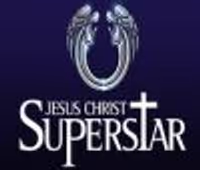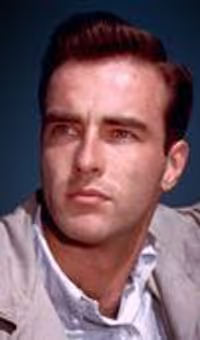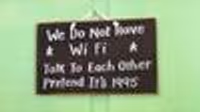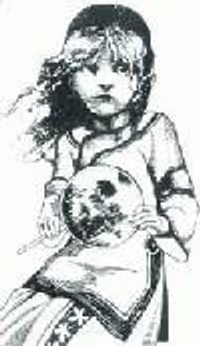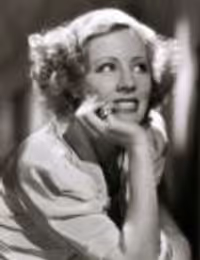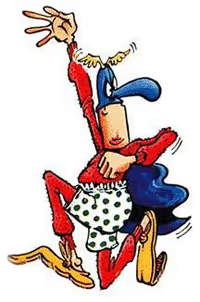Cases where the Film was better than the Musical.
#50Cases where the Film was better than the Musical.
Posted: 7/30/13 at 3:05pm
Oh yes, STATE FAIR. But that's a case where the stage version came after the film version. STATE FAIR was Rodgers & Hammerstein's first original film musical.
I love both versions of the film and the 1962 version has a slight edge over the original version because of Bobby Darin, Ann-Margret and Pamela Tiffin. I can't stand Pat Boone though.
#51Cases where the Film was better than the Musical.
Posted: 7/30/13 at 6:02pm
Hairspray.
(I know I'm probably alone on this one).
Nope, Tazber, I'm with you on this one. I liked the stage version, but I appreciated that the film had more heart.
***
I agree with best12 (and others) about Travolta, but that was the only way he would agree to play it (per numerous articles). Supposedly he told Shankman, "I know what my audience will accept from me and what they will not."
But I've gotten used to the portrayal and the kids in the film are perfection.
Updated On: 7/30/13 at 06:02 PM
Visceral_Fella
Broadway Legend Joined: 1/18/12
#52Cases where the Film was better than the Musical.
Posted: 7/30/13 at 6:09pm
I enjoyed the 80's Annie more than the recent revival. I'm sure I would feel differently if I saw Loudon.
The film version of Grease is better than the musical, by a long shot.
Carrie is better as a movie, and so is Ghost.
#53Cases where the Film was better than the Musical.
Posted: 7/30/13 at 6:21pm
^^^ I suspect that anyone who prefers the film version of GREASE doesn't remember the 1950s. The original stage version treated the period with great affection, as the best parodies always do.
The film mixes 50s' do-wop with 70s' disco and makes fun of the 1950s in a dismissive way. No wonder it made a fortune, selling to kids of the 1970s who found their parents' era hilariously quaint.
The original stage production used parody, too, but always in a context of actually caring about the characters.
#54Cases where the Film was better than the Musical.
Posted: 7/30/13 at 7:18pmThank you, Gav, for articulating what I could not. Though I am not of either time, I have much love for the original R-rated Grease that successfully played Broadway and briefly surpassed Fiddler... as longest-running musical.
Broadway Legend
joined: 5/1/05
Blocked: After Eight, suestorm, david_fick, emlodik, lovebwy, Dave28282, joevitus, BorisTomashevsky, Seb28
#55Cases where the Film was better than the Musical.
Posted: 7/30/13 at 7:21pmMaybe if I'd seen the original production of Grease, I would feel differently. But I've seen it on stage at least 5 or 6 times, ranging from professional to amateur, and it pales in comparison to the film.
blocked: logan2, Diamonds3, Hamilton22
#56Cases where the Film was better than the Musical.
Posted: 7/30/13 at 7:33pm
The cool thing I like about GREASE on stage is that (almost) every character gets a defining song. Doody gets "Those Magic Changes", Marty gets "Freddy, My Love", Jan and Sonny get "Mooning", Kenickie - "Greased Lightning", Rizzo - "There Are Worse Things I Could Do". The movie jettisoned that concept and then took out "Changes", "Freddy" and "Mooning", gave "Greased Lightning" to Danny. They almost cut "There Are Worse Things I Could Do" but kept it in because Stockard Channing fought for it to stay in.
Updated On: 7/30/13 at 07:33 PM
#57Cases where the Film was better than the Musical.
Posted: 7/30/13 at 7:53pm
Good point, Carlos. And giving each character his or her own number is what allowed the original to function as a parody of the entire period of the 1950s.
best12, I can understand you haven't found a cast that competes with the film; though the Australian Sandy always strikes me as unnecessary, I even like Newton-John.
But if you'd seen Barry Bostwick, Treat Williams or even John Travolta himself in the original Broadway run, you might feel differently.
The other problem with the film is that transporting it to suburban Venice High School (down the street from where I lived for 20 years) makes the characters seem absurd. The original clearly took place in an inner-city high school where the 1950s' version of a comic youth gang actually made sense.
#58Cases where the Film was better than the Musical.
Posted: 7/30/13 at 8:27pmYeah, they're in California but most of them talk with BROOKLYN ACCENTS. You really do have to suspend belief when you watch the film version of GREASE because it's not so much a parody but a fantasy. The flying car at the end solidifies that.
KathyNYC2
Broadway Legend Joined: 12/2/10
#59Cases where the Film was better than the Musical.
Posted: 7/30/13 at 8:52pm
This would be a much easier thread if we had to list cases where the film was worse than the musical...
I detested Chorus Line... and double detested Annie 80's version (though I agree, even though it was an abridged version, the later Disney TV remake was a gazillion times better than the 80's movie".
I loved Music Man on stage but really you can't do better than the film of The Music Man. Sound of Music worked better for me on film as well.
I think it's an entirely different category when the movie came first and doesn't contain the music element - but in this category, I would agree that The Apartment was untouchable as a movie. And Kinky Boots was a sweet movie but I love the B'Way version. I think I preferred Billy Elliot as a film. I am also a sucker for the Matilda movie - and I still have a hard time loving Matilda the Musical (even though I just got the CD and am becoming more familiar with the music).
Hairspray has it's own category - film without music, then musical, finally film of musical. I liked all the renditions.
#60Cases where the Film was better than the Musical.
Posted: 7/30/13 at 9:28pm
I think recently, "Far From Heaven"
Older: I would take "Young Frankenstein", The Adams Family" and of all time I'd say "Grease" & WSS
Visceral_Fella
Broadway Legend Joined: 1/18/12
#61Cases where the Film was better than the Musical.
Posted: 7/31/13 at 12:08am
I favor Grease the movie because of the ending. I didn't like the fact that Sandy put in more effort to change than Danny in the musical. Yes, Danny joined the track team in the musical, but the choice to have Travolta come out in the letterman jacket at the end made the material more enjoyable. Sandy's change at the end of the musical struck the feminist in me.
I also favor the movies's placement of Look at Me, I'm Sandra Dee.
It could very well be the performances that I've seen, but I try to digest my theatrical experiences from multiple aspects, and I have to say that the material itself seems stronger to me in the film.
Updated On: 7/31/13 at 12:08 AM
#62Cases where the Film was better than the Musical.
Posted: 7/31/13 at 1:10am
A Little Night Music! What a masterpiece. Way better than that clunky old Hal Prince claptrap.
...just kidding. Though the Bergman film is astounding.
#63Cases where the Film was better than the Musical.
Posted: 7/31/13 at 12:24pm
Guess what was on Kubrick's personal top ten film list (are you sitting down?): At one point, he said it was his favorite film!
Long before Renee, long before Gwen, there was Ginger Rogers as Roxie
Updated On: 7/31/13 at 12:24 PM
#64Cases where the Film was better than the Musical.
Posted: 7/31/13 at 2:25pm
Rock of Ages?
Cause Tom Cruise is in it.
#65Cases where the Film was better than the Musical.
Posted: 7/31/13 at 2:34pmmc, The Addams Family the musical has little to do with the movie, except that they both can be traced back to Charles Addams's cartoons.
landryjames2
Leading Actor Joined: 5/17/06
#66Cases where the Film was better than the Musical.
Posted: 7/31/13 at 2:37pm
The point of the Kubrick lists that was most interesting to me was that he hated The Wizard of Oz (and it was the only one listed under the hated category). Wonder what his reason was for this as it's very curious to me.
The Sound of Music and West Side Story are definitely better films than stage. Chicago ties. Rent, Producers, Hairspray, Nine, Gypsy, A Chorus Line are all better on stage (I'm not taking into account the original Hairspray and Producers movies which are both much better than their musical stage and film incarnations).
Except for The Sound of Music, I think any Rodgers and Hammerstein musical is better on stage than the movie particularly the latest Broadway production of South Pacific (the two movie versions left a TON to be desired in my opinion).
rorschach37
Broadway Star Joined: 4/3/10
#67Cases where the Film was better than the Musical.
Posted: 7/31/13 at 2:42pm
Oliver, definitely.
I also thought the Les Miserables film was far superior to the highly overrated stage version.
#68Cases where the Film was better than the Musical.
Posted: 7/31/13 at 2:50pm
"On the stage Oliver! was an undistinguished musical that people took their children to, dutifully; it was an English variant of Broadway Americana. The movie transforms the material; it's not only a musical entertainment but an imaginative version of the novel as a lyrical, macabre fable. The tone is set in the opening sequence, in the children's workhouse, when Oliver's "Please, sir, I want some more" leads into a choreographed children's riot. The stylization seems to put quotation marks around everything Dickensian, in a way that makes you more aware of the qualities of Dickens' art. It's as if the movie set out to be a tribute to Dickens and a comment on his melodramatic art as well as to tell the story of Oliver Twist. The songs (by Lionel Bart) provide the distancing that enables us to appreciate Dickens' pathos intellectually, and the director, Carol Reed, gives a superb demonstration of intelligent craftsmanship; he doesn't urge us to tears--he leaves us our pride. Typically, the best moment is a quiet one. Oliver (Mark Lester), who has been listening to "Who Will Buy?," the lovely early-morning song of the tradespeople in Bloomsbury, walks along singing a few bars to himself, and it is probably the most delicately beautiful reprise in movie-musical history. The score isn't great, but it's certainly well sung. With Ron Moody as Fagin; Harry Secombe as Mr. Bumble; Shani Wallis as Nancy; Oliver Reed, who finds the right outlet for his peculiar talents as Bill Sikes; and Jack Wild as the Artful Dodger. The musical sequences were choreographed by Onna White; the cinematography is by Oswald Morris; the set designs are by John Box; the screenplay is by Vernon Harris. Produced by John Woolf."
Pauline Kael
SporkGoddess
Broadway Legend Joined: 7/27/05
#69Cases where the Film was better than the Musical.
Posted: 7/31/13 at 4:52pmI posted Rock of Ages because I thought that they really improved upon the storyline (dropping that stupid "Friend Zone" plot, the Germans, etc).
AEA AGMA SM
Broadway Legend Joined: 8/13/09
#70Cases where the Film was better than the Musical.
Posted: 7/31/13 at 4:52pm
"mc, The Addams Family the musical has little to do with the movie, except that they both can be traced back to Charles Addams's cartoons."
I still like to think that if they had adapted the first movie and had Marc Shaiman expand upon his film score for the stage The Addams Family would still be running. Andrea Martin would have made a fantastic Dr. Pinderschloss.
#71Cases where the Film was better than the Musical.
Posted: 7/31/13 at 5:37pm
The flying car at the end solidifies that.
Amen, Carlos! I had to stifle my scoffing because I had my stepkids with me and they loved the film. But I found it a mismatch of different film styles.
I have, however, gotten used to it over time and learned to appreciate its better moments.
The original Broadway GREASE was much maligned by Broadway highbrows, but I always thought they missed the point.
#72Cases where the Film was better than the Musical.
Posted: 7/31/13 at 5:41pm
I love both versions of the film and the 1962 version has a slight edge over the original version because of Bobby Darin, Ann-Margret and Pamela Tiffin.
Personally, I find the 1945 version much more charming. Ann-Margret is unintentionally hilarious doing her hip jazz kitten thing in that particular story. Thank God her character never had to try and throw away a wad of paper.
#73Cases where the Film was better than the Musical.
Posted: 7/31/13 at 5:44pm
Except for The Sound of Music, I think any Rodgers and Hammerstein musical is better on stage than the movie particularly the latest Broadway production of South Pacific (the two movie versions left a TON to be desired in my opinion).
I agree and I think the problem is that Hammerstein invokes natural wonders in his lyrics. When the same song is sung in Technicolor, the lyrics become redundant: we can see the "bright, golden haze on the meadow" and we don't need to hear Curley sing about it. Same with "Bali Hai".
THE SOUND OF MUSIC is an exception because the stage musical takes place almost entirely indoors, and except for the title number, the songs are not about the beauty of the Austrian Alps. Adding the gorgeous scenery in the film, then, is not redundant as it is in OKLAHOMA! and SOUTH PACIFIC.
The film of THE KING AND I works better for the same reason.
#74Cases where the Film was better than the Musical.
Posted: 7/31/13 at 11:17pm
I disagree that "Fiddler on the Roof" was better in the movies. The stage musical always makes me feel the warmth of the characters, whereas the more realistic movie setting was just too grim.
I thought "Les Mis" was an incredible film, and definitely agreed with the change in the order of the songs. Here, the grittiness of the first scene was a boost to the story, because of the contrast to JVJ's later life.I also liked the new scene with the new song, "Suddenly," because it made clear what is ambiguous in the stage show: Is JVJ just trying to fulfill his promise to Fantine or does he feel like a father to Cosette? On the other hand, the presence of Monsieur Crowe as Javert was, shall we say, not as successful as much of the movie. ![]()
I think the "Mary Poppins" movie was superior to the stage show, despite the incredible dance scene with the magnetic boots up the side of the stage and across the top. The mixture of live action and cartoon in the 1964 movie was revolutionary. I also thought the addition of the first nanny in the stage show was obnoxious, which diminished the performance for me.
I think the original stage version of "My Fair Lady" and the 1964 movie are about equal, possibly because of the almost identical translation from stage to screen, and the repeat casting of Higgins and Alfred P. Doolittle, as well as Cecil Beaton's return. I'm not as enamored of recent stagings of "My Fair Lady." Eliza's new Ascot hat is looney -- almost as unusual as the Royal Family's 21st century hats. ![]() Also, the addition of the subway, which replaces the taxi when Eliza returns to Covent Garden, is odd -- Freddy still arrives in a taxi, so how does he know where to find her? I do like the idea of Freddy being drunk, instead of just love-besotted. But, as I've complained numerous times on this board, what's with the ancient, professorial Higgins? The new casting just doesn't compare to the forty-something "Sexy Rexy."
Also, the addition of the subway, which replaces the taxi when Eliza returns to Covent Garden, is odd -- Freddy still arrives in a taxi, so how does he know where to find her? I do like the idea of Freddy being drunk, instead of just love-besotted. But, as I've complained numerous times on this board, what's with the ancient, professorial Higgins? The new casting just doesn't compare to the forty-something "Sexy Rexy."
I've heard that Keira Knightly was taking singing lessons for a My Fair Lady remake that was supposed to be more gritty than the 1964 version. No thank you on the gritty part. If Keira can pull off "I Could Have Danced All Night," without being dubbed, she'd be a good choice. I'm not sure what happened to that project. It may have fizzled.
Videos




